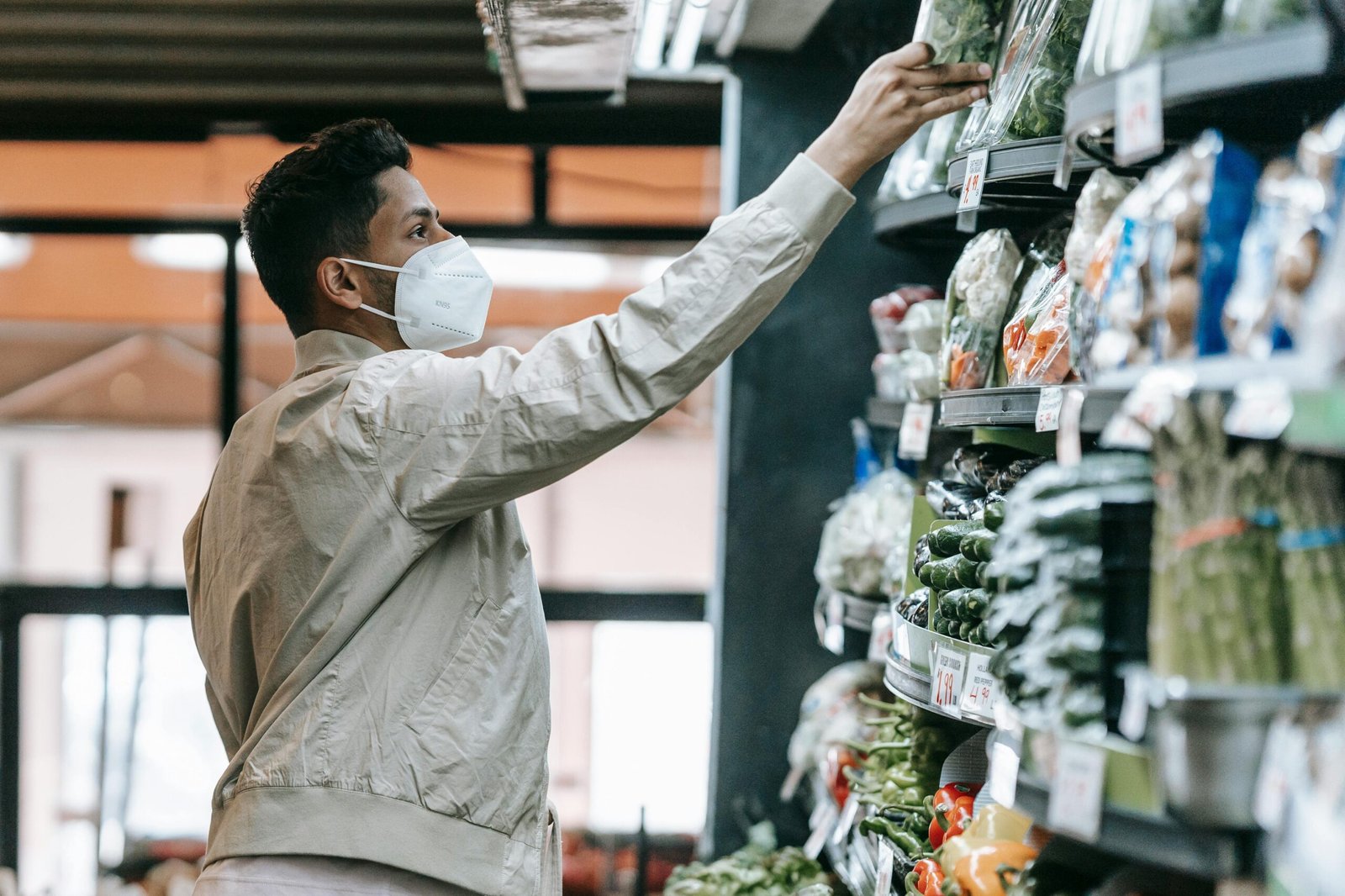
Food safety is a fundamental concern for consumers across the world, especially in a diverse and populous country like India. With millions of people depending on the food industry for their daily sustenance, the importance of maintaining high standards of food quality, hygiene, and safety cannot be overstated. Despite numerous regulations in place, food safety complaints continue to be a major issue for consumers in India.
Table of Contents
What Are Food and Safety Complaints?
Food and safety complaints are issues raised by consumers regarding food products that do not meet safety standards. These complaints can range from foodborne illnesses caused by contaminated food, adulteration, misleading labeling, or hygiene issues in restaurants and food outlets. In India, these complaints can also involve the unavailability of critical information like ingredients, expiration dates, and food sourcing.
Food safety complaints are not just about physical illness or injury. They also relate to the broader concern of consumer rights, transparency, and the ethical practices of food producers, distributors, and sellers.
Problems Faced by Indian Consumers
The Indian food industry is vast and highly unregulated in certain segments. Despite the presence of regulations from agencies like the Food Safety and Standards Authority of India (FSSAI), consumers often face several challenges related to food safety.
Here are some of the most common problems faced by Indian consumers:
- Adulteration and Contamination: Adulteration, where harmful substances are added to food products to increase weight or volume, is a major concern. Contaminants such as pesticides, artificial colors, preservatives, and other hazardous chemicals often find their way into food products. This not only impacts the taste but also poses serious health risks.
- Lack of Transparency in Food Labels: The lack of proper labeling or misleading information on packaging is a frequent issue. Consumers often complain about not being able to read ingredient lists due to poor printing quality, or finding misleading “organic” or “natural” labels on products that are actually processed with artificial additives.
- Improper Storage and Handling: Unsanitary practices in food production and handling are significant contributors to foodborne illnesses. The improper storage of food items—such as dairy, meat, or vegetables—can lead to contamination. This is common in local food markets, grocery stores, and restaurants that don’t adhere to health and safety protocols.
- Inconsistent Quality Across Different Regions: Food quality can vary significantly across different regions of India, especially in rural and semi-urban areas. Consumers in these regions may not have access to the same quality of food safety measures as those in more urbanized areas. This inconsistency leads to consumer frustration and safety concerns.
- Ineffective Enforcement of Food Safety Regulations: Despite regulations like the FSSAI, there is often a lack of enforcement at ground levels. FSSAI’s efforts may not always be sufficient to ensure that food sellers, manufacturers, and distributors adhere to proper standards.
- Rise of Online Food Delivery Concerns: With the rise of online food ordering platforms, consumers are increasingly voicing complaints about the quality of food delivered. Issues such as contamination, delays, packaging issues, and poor hygiene in the kitchens are frequently reported.
Case Studies of Food Safety Complaints in India
1. The Maggi Noodles Controversy (2015)
In one of the most high-profile food safety cases in India, Nestlé’s Maggi noodles were pulled off the shelves in 2015 after food safety authorities raised concerns over high levels of lead and MSG in the product. The FSSAI issued a ban on Maggi noodles in several states, triggering widespread consumer complaints regarding food safety standards. Nestlé India eventually had to recall millions of packets of noodles and faced major legal and public relations issues. The case highlighted the gaps in food safety checks and regulatory compliance and underlined the importance of consumer protection in food-related matters.

2. The Coca-Cola and Pepsi Pesticide Scandal (2003)
In 2003, a study by a non-governmental organization, Center for Science and Environment (CSE), found that popular soft drink brands like Coca-Cola and Pepsi contained high levels of pesticides. The news sparked a massive public outcry and led to food safety complaints from thousands of consumers. The companies were required to address the issue by improving their quality control measures. This case helped raise awareness about the role of regulatory bodies in maintaining food safety and the potential health risks associated with the consumption of these drinks.
3. Unhygienic Conditions in Restaurants and Food Outlets (2019)
A series of complaints were filed with the FSSAI in 2019 about unhygienic conditions in food outlets and restaurants across major Indian cities. Consumers reported seeing food being prepared in unsanitary kitchens, with improper waste disposal and unclean equipment. Multiple food safety complaints were raised, leading to inspections by authorities and the closure of several restaurants that failed to meet hygiene standards. The incident further emphasized the need for better enforcement of food safety regulations in India.
How Consumers Can File Food Safety Complaints in India
The Food Safety and Standards Authority of India (FSSAI) plays a crucial role in maintaining food safety in the country. If consumers experience any food-related problems, they can file a food safety complaint with the FSSAI or their respective state food safety authorities. Here are the steps involved:
- Online Complaint Portal: Consumers can visit the official FSSAI website and lodge a complaint through their online portal. This complaint can be regarding adulteration, contamination, expired products, or improper labeling.
- Grievance Redressal Mechanism: FSSAI has set up a Grievance Redressal Portal where consumers can track the progress of their complaints and get regular updates.
- Helpline and Customer Support: Consumers can call FSSAI’s Food Safety Helpline at 1800-112-100 or 1031 to register a complaint. The customer care department will guide them on the next steps for further action.
- Email Communication: Complaints can also be lodged via email at complaints@fssai.gov.in or by contacting the state’s Food Safety Commissioner.
- Social Media: FSSAI also encourages the use of social media for registering complaints. Consumers can tweet their concerns to @fssaiindia and get immediate attention.
How Kanoon360 Can Help
For more complex food safety issues, especially those involving consumer rights violations or severe consequences such as health problems, Kanoon360, a leading legal service provider, can assist consumers in seeking justice. Kanoon360 offers legal consultations, guidance, and representation to consumers who face food safety issues that require legal intervention. Whether it’s dealing with a foodborne illness or taking action against a food company for negligence, Kanoon360 ensures that consumers’ rights are upheld.
Customer Care Details and Grievance Portals
Here are some key customer care details and grievance portals for consumers to file food safety complaints:
- FSSAI Food Safety Helpline:
- Helpline Numbers: 1800-112-100, 1031
- Email: complaints@fssai.gov.in
- Website: https://www.fssai.gov.in
- Consumer Affairs Helpline:
- Toll-Free Number: 1800-11-4000, 14404
- Website: https://consumeraffairs.nic.in
- National Consumer Helpline:
- Number: 1800-11-4000
- Website: https://www.ncdrc.nic.in
- Kanoon360 Legal Help:
- Phone Number: 1800-120-3131
- Website: https://www.kanoon360.com
Frequently Asked Questions (FAQ)
- How do I file a food safety complaint in India? You can file a complaint with the FSSAI through their online portal, via email, or by calling the Food Safety Helpline at 1800-112-100.
- What should I do if I find adulterated food products? You should immediately report it to the local authorities, FSSAI, or state food safety officials, providing relevant evidence such as photos, packaging details, and receipts.
- What is the FSSAI’s role in food safety? FSSAI is responsible for ensuring the safety and quality of food products in India. They regulate food standards, provide guidelines, and take action against violators.
- How can I contact FSSAI for help? You can contact FSSAI via their customer care helpline, email, or through their website’s grievance portal.
- What compensation can I expect from food safety complaints? Compensation depends on the severity of the issue. For health-related incidents, legal action may be taken, and compensation may be awarded as per court decisions.
- Can Kanoon360 help me with a legal issue related to food safety? Yes, Kanoon360 provides legal consultations and assistance to consumers facing food safety concerns and can guide you through legal processes.
- What are the consequences of filing a false food safety complaint? Filing false complaints can lead to legal penalties, including fines and imprisonment, under the Consumer Protection Act.
Also Read: Snackible: Revolutionizing the Snacking Experience for Indian Consumers
Conclusion
Food and safety complaints are a growing concern for Indian consumers. Whether it’s about adulteration, contamination, labeling issues, or unhygienic practices, the Indian food safety landscape still requires significant improvements. However, mechanisms are in place for consumers to raise their voices and seek resolution. Organizations like Kanoon360 offer valuable legal support for consumers facing more severe challenges.
To protect your rights and ensure that food safety standards are upheld, it’s important to stay vigilant, educate yourself about food safety regulations, and utilize the available grievance portals and legal resources effectively.



